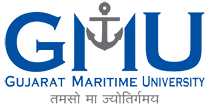- About Us
- Schools & Centers
- School of Maritime Law, Policy & Administration
- School of Maritime Management
- Center of Executive Education
- Research Centres
- Centre for Maritime Security Studies
- Centre for Maritime Environmental Law
- Center on Maritime Labour Law
- Centre for Maritime Dispute Resolution
- Centre for International Trade and Investment Law
- Center of Post Graduate Legal Studies
- Centre of Maritime Logistics
- Centre for Maritime Economy
- Centre for Maritime Innovation & Entrepreneurship (CMIE)
- Research Centres
- Gujarat International Maritime Arbitration Centre
- Proposed Schools & Centers
- Events
- Research & Publications
- Students
- Placements
- Campus
- NIRF
- Gallery
